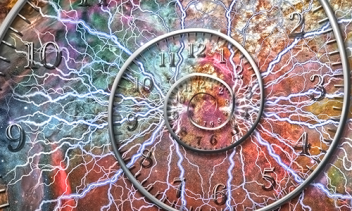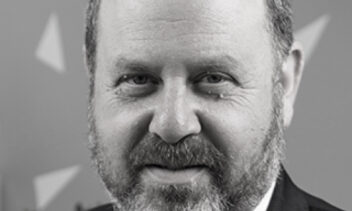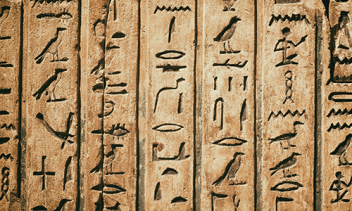How has religion influenced science? We often think of the relationship between religion and science as antagonistic, two friends trying to outrank the other, or perhaps even two enemies trying to vanquish the other. At times, religious thought may acknowledge the great possibilities in scientific thought, the wonders and understanding privileged to the world of science. Scientists may also acknowledge the limitations of reason and the space for faith where reason ends.
Enter Professor Allison Coudert.
A noted scholar of religious studies, Allison is deeply comfortable at the intersection of religion and science, with a particular emphasis on Jewish contributions to science and gender issues. In her book Religion, Magic, and Science in Early Modern Europe and America, Allison explores the complicated interplay between the webs of enchantment that animate religion, magic, and science. Allison explores the boundaries that we have put up between theological exploration and scientific exploration, finding that mystical ideas from the Kabbalah have influenced the scientific inquiry of Early Modern Europe that redefined Western civilization. The missing step between Kabbalah and scientific advancement is the Christian Hebraists, a fascinating group to whom Allison also dedicates a book.
Gottfried Wilhelm Leibniz (1646-1716) is one of the noted logicians and philosophers of the Age of Enlightenment, the 17th century intellectual trend that preceded (and in some ways birthed) the 18th century Industrial Revolution. Leibniz was a serious polymath who wrote in Latin, French, and German, with interest in and knowledge about everything. One of Allison Coudert’s earlier books is on Leibniz and the Kabbalah, in which she argues that the Kabbalah should be considered a meaningful influence on Leibniz’s thought, and subsequently on the eventual emergence of the development of science and scientific thinking.
The question of how has religion influenced science is by no means a simple equation, as Alison demonstrates in her many studies. The nature of this influence, and of the broader relationship between religion and science, has many threads. One such thread is disenchantment.
… religion and science are not antagonists, but rather religion can be a source of the awe and enchantment that fuel scientific inquiry, and vice versa.
Max Weber (1864-1920) was an important German historian, sociologist, and political economist, many of the most lasting ideas we have of the current state of our contemporary world were the subject of important analyses by Weber. One of Weber’s most lasting – and controversial – ideas is that of ‘disenchantment.’ Here’s the background:
In 1917, the German political economist Max Weber gave an important lecture at the Ludwig-Maximilians-Universität in Munich, which was entitled “Science as a Vocation.” Weber argued that the increased intellectualization and rationalization of Western culture have not improved our knowledge of how to live in the world; rather, they have given us the firm belief that we can learn whatever we need at any time. There are no “mysterious incalculable forces that come into play”; instead, we believe deep down that we can in principle “master all things by calculation.” Then came one of the remarks for which Weber became well known: “This means that the world is disenchanted.”
Disenchantment had been becoming more and more apparent in Western culture for a long time, Weber believed, yet at the turn of the 20th century it had become a defining trait of modernity. To be a modern person meant, and means, first of all, not to trust in magic, prayer, ritual, sacraments, or anything of the sort; more than that, though, it means not to allow oneself to be enthralled by anything at all, at least not for very long. Anything that appears mysterious can be shown, by careful methodical investigation, to have a rational explanation. A century after Weber’s lecture, the West is divided over the success of disenchantment.
Disenchantment is for many the calling card of modernity. That vague sense of fragmentation, rationality, mystery-less-ness that so many have felt in this era, all under one term: disenchantment. As can be expected from so sweeping a claim, the history of disenchantment is freighted with debate. Some dispute the very premise, pointing out that the ‘magical’ still has a following in much of the world. Some prefer instead to focus on the necessity of ‘re-enchanting’ the world, while others discuss “disenchanting disenchantment,” or even “disenchanting re-enchantment,” referring to our need to either seek enchantment in a post-enchantment world, move past our fascination with our lack of enchantment, or move past our need for new enchantment.
The idea of disenchantment presumes that scientific, rational thinking is either devoid of wonder, or that its widespread adoption in the west has led to a shift towards less wonder-filled thinking. As religion and science are two different impulses, the rise of one (science) leads to the diminished appreciation for the wonder that fuels the other (religion).
However, Allison Coudert sees a far more textured reality at play. In her words:
Eighteenth-century enlightenment science and philosophy and its nineteenth-century counterparts enchanted the world by revealing the marvelous and magical possibilities of science and by emphasizing the sheer pleasures of the imagination. But it was not science alone that offered new kinds of enchantment; literature, art, and the new forms of entertainment that arose did as well. Reason, I contend, was not the enemy of magic and enchantment but one of its greatest allies.
Allison breaks down the binary between science and enchantment/wonder with which we are so comfortable:
I am arguing that throughout Western history there have been periods of disenchantment, but in every case new forms of enchantment arose to fill the gap. This is particularly true of the eighteenth and nineteenth centuries when enchantment escaped the confines of the church, entering the public realm of pleasure gardens, theaters, scientific societies, zoos, pubs, cabarets, circuses, freak shows, mountain trekking, bicycling, and out-door camping…
In this perspective, religion and science are not antagonists, but rather religion can be a source of the awe and enchantment that fuel scientific inquiry, and vice versa. Both are fueled by and fuel the wonder (or enchantment) that brings mystery and excitement to humanity. In Rabbi Joseph B. Soloveitchik’s timeless formulation, the endless external inquiry and drive of Adam 1 – who seeks to understand all – and the inward inquiry and reflection of Adam 2, both work to guard the Garden of Eden.
The interplay between awe, reason, science, and religion is complex, and Allison Coudert is well-equipped to guide you. Allison has a PhD from the Warburg Institute, University of London, and she now serves as a professor of religion in UC Davis. Allison brings deep curiosity, scholarship, and creativity to her conversation with 18Forty.
Listen to this week’s guest on our episode with Professor Allison Coudert.








